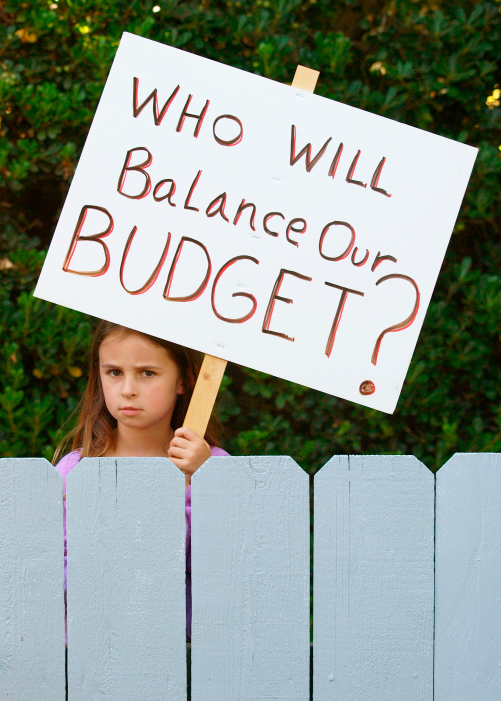Reaffirming his commitment to force America’s energy sector away from fossil fuels to renewable energy sources through the exercise of regulatory power and spending priorities, President Obama has proposed substantial funding increases for the White House’s climate and renewable energy priorities.
In unveiling the administration’s FY 2016 budget proposal, Obama left little doubt his party’s loss of the Senate in November’s midterm elections will not deter the him from trying to reorder the nation’s energy priorities.
In a statement accompanying the release of his budget plan, the president said, “[T]his budget takes action on climate by supporting the Climate Action Plan that I released in 2013 with investments to accelerate carbon pollution reductions, to build on-the-ground partnerships with local communities and help them put in place strategies for greater reliance on climate change impacts, and to support America’s leadership abroad on this moral and fiscal issue.”
Green Initiatives’ Funding Increased
The administration’s nearly $4 trillion budget includes a number of proposals aimed directly at the president’s renewable energy and climate goals. First, Obama proposes to boost funding for the Environmental Protection Agency (EPA) from $8.1 to $8.6 billion, and for the Energy Department from $27.3 to 29.9 billion. The budget would also make $7.4 billion available to fund green energy projects and provide $500 million to the UN’s Green Climate Fund to help developing countries reduce carbon emissions and increase their resilience to the impacts of climate change.
Targeting the states, Obama proposes to provide $4 billion in funding to a “Clean Power State Incentive Fund” to encourage states to lower their greenhouse-gas emissions from power plants. And spend nearly $5 billion over the next six years on infrastructure construction and repair. Obama would also make available $400 million for a National Flood Insurance Program to map out flood risks nationwide, and would supply the Agriculture Department with $200 million to assist rural communities in preparing for extreme weather events.
To partially pay for increased spending on energy and climate related programs, Obama would increase royalty fees for fossil fuels projects on public lands, which the administration estimates will bring in $2.5 billion over the next ten years, and increase grazing fees on cattle ranchers using public lands by the maximum amount of 25 percent.
Negative Reaction
Dan Simmons, vice president for policy at the Washington-based Institute for Energy Research, said, “The Obama budget is completely out of step with the rest of America. While Americans like lower energy prices, President Obama is focused on driving up energy prices and making it hard to use coal, oil, and natural gas. With today’s gasoline prices, Americans are saving more than $2 billion a week. Most people think this is a good thing. President Obama thinks this is a bad thing and is working to bring back higher prices.”
Obama’s call for new taxes on the oil and gas industry does not sit well with Jack Gerard, president and CEO of the American Petroleum Institute. “The president’s annual call to raise taxes on U.S. oil and natural gas development would hurt job creation, infrastructure investment, the federal deficit, seniors on fixed income, and domestic manufacturing,” he told U.S News and World Report (Feb.2). “The United States is now the number one oil and natural gas producer in the world. Tax increases would jeopardize America’s competitiveness as it would discourage future investment. We need policies that encourage investment, and higher taxes are not the answer.”
Political Realities
As with all budgets proposed by the White House, the finished product will likely bear little resemblance to the final budget hammered out with Congress in the months to come. With Republicans now controlling both houses of Congress, the administration has lost much of the leverage it had when Harry Reid (D-NV) was Senate Majority Leader. The Cromnibus budget bill of December 2014 cut the EPA’s budget and barred spending on the UN climate fund, and few think it is likely Congress will reverse these cuts in the coming budget year. Likewise, with Congress under Republican control increased taxes on oil and gas extraction on federal may be dead on arrival at the Capitol.
“It might be comforting to think Obama was just playing to his base by putting forward proposals he knows full well will go nowhere in Congress,” said Craig Rucker, executive director of the Washington-based Committee for a Constructive Tomorrow. “But the past six years tell us he really believes in these things and he is prepared to bypass Congress and get federal agencies, either through regulations or grants or taxpayer loans, to implement his skewed energy policies.”
“While the president’s budget is about the past, our budget will be about the future,” House Speaker John Boehner (R-OH) said in a statement responding to the president’s budget proposal. “We will address our government’s spending problems and our national security. Our budget will balance, and it will promote job creation and higher wages, not more government bureaucracy.”
Bonner R. Cohen, Ph. D., ([email protected]) is a senior fellow at the National Center for Public Policy Research in Washington, D.C.
INTERNET INFO
The President’s Climate Action Plan, June 2013. http://heartland.org/policy-documents/presidents-climate-action-plan





